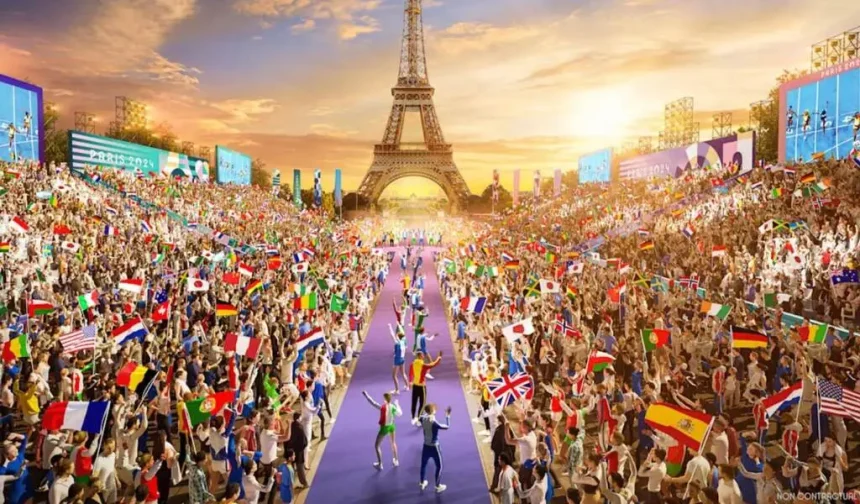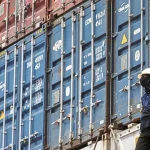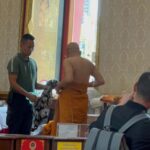(CTN News) – This week, France began its full Olympic countdown. The much-anticipated Summer Games will begin in Paris tomorrow with a stunning evening parade of 85 vessels and barges down the renowned River Seine.
This one-of-a-kind, imaginative opening ceremony will feature over 10,000 athletes and team dignitaries, as well as a spectacular Pharaonic extravaganza that will evoke both ancient Egypt and modern France.
The Games arrived after years of planning, with traffic chaos even by Parisian standards and a security lockdown in several areas of the city.
Not unexpectedly, many Parisians have left the city to avoid the crowds and traffic. Tourism is also down, and the city is quieter than usual.
Despite costing almost copy0 billion (approximately 361 billion baht), the Games were less expensive than previous Olympiads. Surprisingly, it has not gone over budget. Furthermore, construction was integrated into existing venues and buildings, resulting in a lower “carbon footprint”.
Naturally, the Games have been fraught with controversy; Anne Hidalgo, Paris’ Socialist mayor, prevented Total Energy from serving as a sponsor. Instead, there’s the luxury goods conglomerate LVMH.
Ms Hidalgo addressed the risk of swimming in the otherwise filthy River Seine by taking a brief dip in a wetsuit in a publicity-staged and incongruous event.
Security is tight the week before the aquatic opening ceremony, with 45,000 police and Gendarmes erecting metal fencing along both sides of the Seine for more than 3 kilometers in an already dense and historic urban area.
People residing in the impacted zone require specific QR codes on their phones to reach their own neighborhoods and residences in fashionable areas. A week before the events, public transportation was prohibited in many sections of Paris.
Even pedestrian and bicycle movements were severely restricted. While wandering around well-known streets and haunts near the river, I noted that several checkpoints required QR codes for local mobility.
Movement was regulated by municipal and national police, as well as the Gendarmerie, who were frequently armed with automatic weapons.
Such area control recalled Paris during the Covid-19 outbreak, when local lockdowns reached ridiculous proportions.
An additional 18,000 military personnel strengthened security against terrorist threats, particularly rooftop security along the river, and provided anti-drone technology. Special security speedboats were placed on the river, and Swat troops were ready for any situation.
Large stretches of the Seine were lined with newly constructed spectator seats, and 10,000 athletes will make a waterborne parade tomorrow, culminating at the Eiffel Tower and the Trocadero. Approximately 300,000 people are anticipated to throng the Seine for the stunning event.
The Summer Games, which will take place from July 26 to August 11 and will be followed by the Paris Paralympics, will bring together 24,000 competitors from all over the world as well as hundreds of thousands of spectators.
Among more than 30 conventional sporting competitions such as boxing, sailing, swimming, soccer, and judo, the Paris committee is introducing a new sport this Olympiad: breakdancing. Athletes will compete for 329 gold medals.
The venues range from the magnificent skatepark in the newly created urban park in the central Place de la Concorde to swimming in new aquatic stadiums in St Denis, to taekwondo in the historic Grand Palais in central Paris, which hosted the 1900 Grand Expo, to equestrian events in the gardens of the Palace of Versailles.
While the majority of events will take place in Paris, such as beach volleyball at the Eiffel Tower in a new 13,000-seat pop-up stadium, sailing competitions will be held halfway across the world in French Polynesia.
Around 14,000 athletes will lodge at the newly constructed Olympic Village in St Denis.
Following the Games, the town will become affordable housing in this impoverished area of suburban Paris.
In parallel, many of the larger teams will offer special hospitality sites, such as Team USA House, which is located in the historic Palais Brongniart in central Paris. Korea House is located in the Maison de Chimie, a prestigious building near the Parliament. Denmark has an excellent location on the center Champs Elysees.
For those without expensive tickets to athletic events, the Hotel de Ville (City Hall) boasts a stunning “fan zone” with continuous video and live events.
Bruno Jeudy of the monthly La Tribune Dimanche remarked in an editorial, “In the end, let’s not forget the last step associated with Olympianism; excellence.”
Source: Bangkok Post














